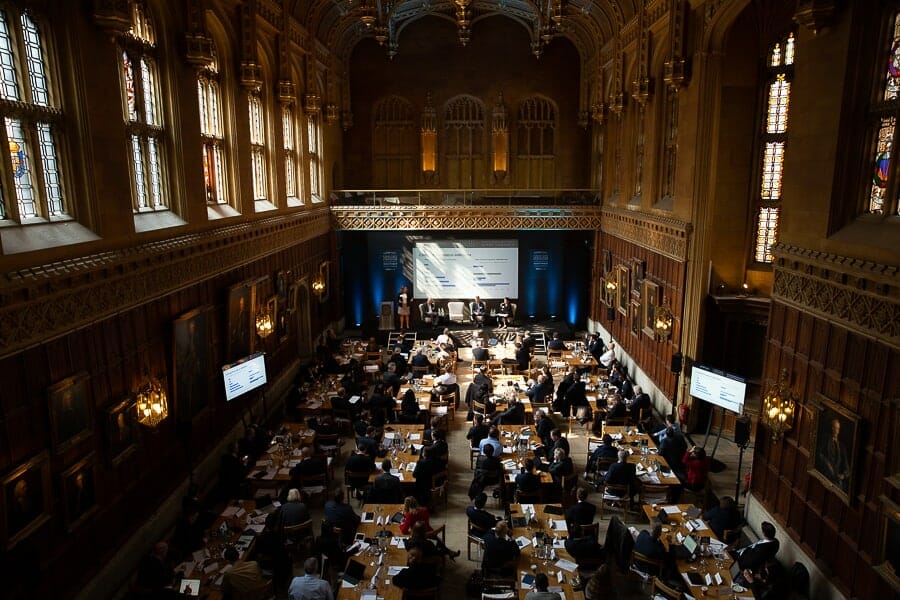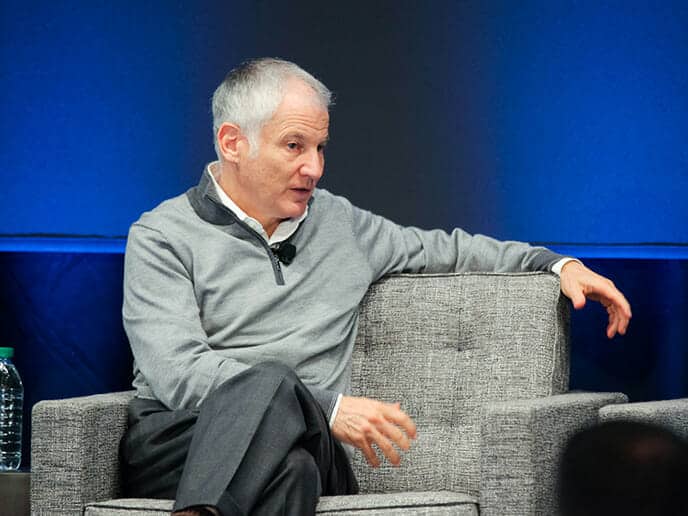It is more important than ever for investors to stress test their portfolios Greg Jensen, co-CIO of Bridgewater Associates told delegates at the Fiduciary Investors Symposium at Cambridge University.
He said the next 30 years will be very different to the past 30 years, and investors needed to ensure their portfolios had environmental diversification for the range of possibilities.
Jensen emphasised that geographical diversification could also be critical but an audience poll showed two thirds of delegates were not allocated to Asia consistent with the global importance of those markets.
Professor Martin Daunton, emeritus professor of economic history and emeritus master and honorary fellow of Trinity Hall at the University of Cambridge warned delegates that a failure to deal with the redistributive consequences of hyper-globalisation can have serious social and political costs as before 1914.
He said the agenda needs to shift from neoliberalism to progressive era policies.
As an example he pointed to Piketty’s manifesto to save Europe from ‘hardcore liberalism’ by creating a ‘new model to ensure the fair and lasting social development of its citizens’ by showing that Europe could restore solidarity between citizens ‘by making those who have gained from globalisation contribute to the financing of public-sector good.
“That will mean making large firms contribute more than small and medium businesses, and the richest taxpayers paying more than poorer taxpayers’,” he said.
Professor Mike Kenny, professor of public policy at the University of Cambridge talked about Brexit as a protracted political crisis in the UK, saying there will be some political instability for several years.
He said the resilience of the UK economy’s fundamentals would be an important consideration and the harder the Brexit the bigger the impact on GDP. Overall as a result of Brexit the EU will have lower GDP that the US.
Pilar Gomez-Bravo, director of fixed income for Europe at MFS Investment Management said the question around interest rates and inflation are the big questions when it comes to Brexit.
“An election is the big threat to markets. If Brexit goes as planned Carney will increase interest rates. And as soon as there is an election it will impact currency and gilts,” she said.
But there is nothing happening in Brexit that is significant in the context of Britain’s relationship with Europe according to Stephen Kotkin, Professor of History and International Affairs at Princeton University. Kotkin talked about turning points in the past including the late 1970s where Reagan, Thatcher and the free market revolution reigned, there was the political Islamism rising and it marked the beginning of the reform era in China. He said “we are currently experiencing a global turning point but we don’t know where because we’ve never been able to know it in real time”.
He advised that investment strategy should be centred around serving the China middle class and the dislocation from within Asia.
In a panel on China, former head of asset allocation at CIC, Hua Fan, who is now director of China Wealth Management 50 Forum said it’s often joked that China has the worst beta in the world, but the best alpha, evidenced by the National Social Security Fund has performance of 15 per cent a year.
China’s inclusion in MSCI indexes is moving from 5 to 20 per cent soon, and Remy Briand, chair of index policy committee at MSCI, who has been involved with market classification for 15 years, said the inclusion was an indication of a willingness of reform.
“The market is huge and a lot of people have not realised that. It is as big and deep as the US market,” he said. Ultimately China could represent 45 per cent of emerging markets.
Investors spend too much time talking about investing in China the country and not enough time talking about Chinese investments according to Mark Walker, chief investment officer at Coal Pension which is about to invest in onshore Chinese investments for the first time.
The closing session of the day turned delegates attention to the problems and opportunities of an ageing population, a topic that will also be addressed at the next Fiduciary Investors Symposium to be held at Harvard University in October.
George Leeson, director of the Oxford Institute of Population Ageing at the University of Oxford said the ageing population will impact every aspect of our lives, and yet all the infrastructure is built for a young population.
The panel which also included Benjamin Davis, chief executive of Octopus Healthcare and Nigel Sibley, chief executive of Lifecare Residences discussed how ageing is no longer about frailty but about health and contributing to society and how infrastructure of the future needs to contribute to that.
This is potentially a huge opportunity for investors.



